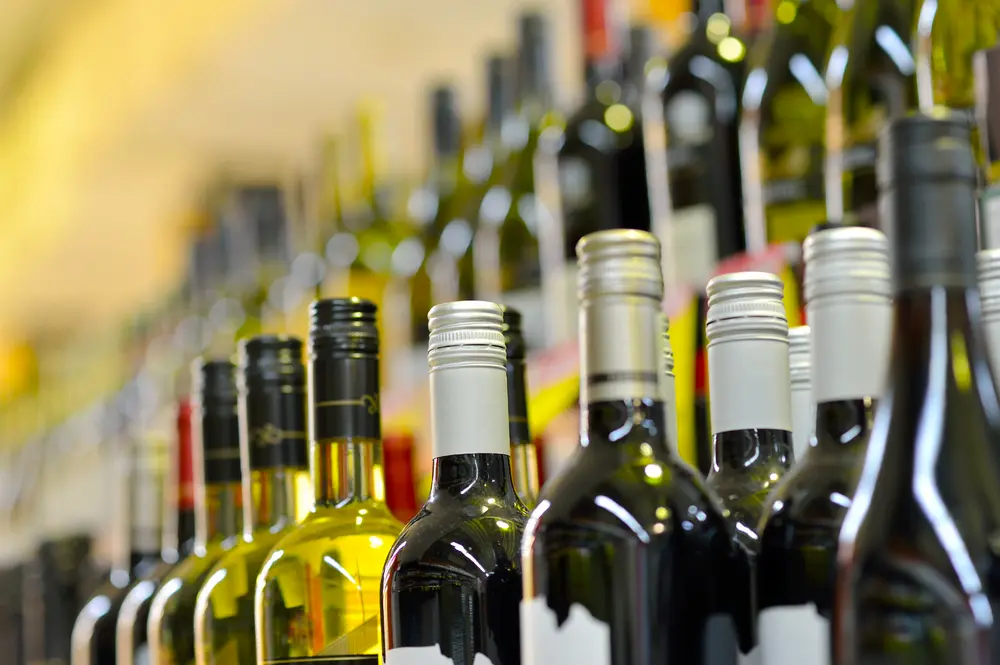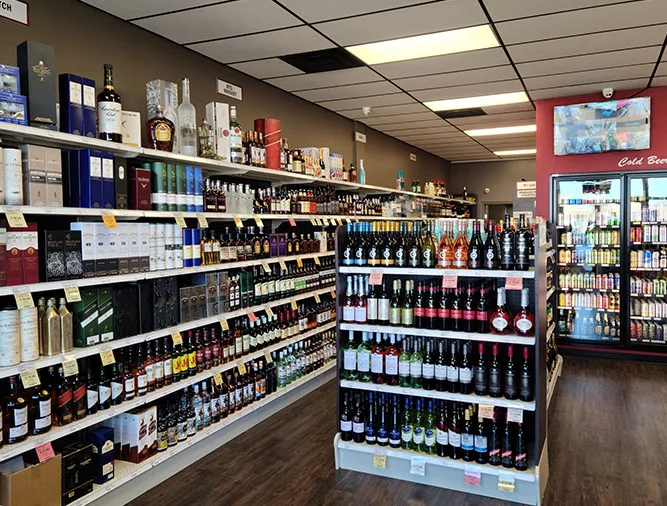Welcome to the Sunshine State, where the beaches are beautiful and the drinks are always flowing. Are you thinking of opening a liquor store in Florida? Well then, let me be your guide! As someone who has successfully navigated the process, I’m here to share with you all the tips and tricks for making your business dreams a reality.
In this ultimate guide, we’ll cover everything from obtaining a liquor license, finding suppliers, marketing strategies, and more. I’ll also share my personal experience and expertise in running a successful liquor store in Florida for over 10 years. Whether you’re an experienced entrepreneur or just starting out, this comprehensive guide will provide valuable insights and resources to help you open a thriving liquor store in Florida. So grab your notebook and let’s get started on turning your vision into reality!
So, how to open a liquor store in Florida?
Opening a liquor store in Florida can be an exciting and profitable venture. However, it requires careful planning and preparation to ensure success. Here are some key steps to follow when starting your own liquor store in the Sunshine State.
1. Research the Market
Before diving into any business, it’s important to thoroughly research the market you will be entering. This includes understanding the demand for alcohol in your chosen location, as well as studying your competitors and their pricing strategies.
2. Create a Business Plan
A solid business plan is crucial for any new venture. It should outline your goals, target market, financial projections, and marketing strategies. This will not only help you stay organized but also serve as a roadmap for future growth.
3. Obtain Necessary Licenses and Permits
In order to sell alcohol in Florida, you will need to obtain various licenses and permits from both state and local authorities. These include a Retail Beverage License from the Division of Alcoholic Beverages & Tobacco (ABT) and a Local Business Tax Receipt from your county or city government.
4. Secure Funding
Starting any business requires capital investment, so it’s important to secure funding before launching your liquor store. You may choose to finance through personal savings or loans from banks or investors.
5. Find A Suitable Location
The location of your liquor store can greatly impact its success. Look for areas with high foot traffic or near other businesses that attract potential customers such as restaurants or grocery stores.
6. Stock Up on Inventory
Once you have secured a location, it’s time to stock up on inventory! Make sure you have a wide variety of alcoholic beverages including popular brands as well as niche products that cater to specific tastes.
7. Hire Staff
Having knowledgeable staff is essential for running a successful liquor store. Hire employees who are passionate about customer service and have good knowledge about different types of alcohol.
8. Marketing Strategies
To attract customers initially and retain them in the long run, it’s important to have effective marketing strategies. This can include advertising in local newspapers or magazines, hosting tasting events, and utilizing social media.
9. Follow Regulations
As a liquor store owner, it’s crucial to follow all state and federal regulations regarding alcohol sales. This includes checking IDs of customers who appear under 30 years old and not selling alcohol outside of designated hours.
10. Provide Excellent Customer Service
In any business, customer satisfaction is key. Train your staff to provide excellent customer service and go above and beyond for each customer. Happy customers are more likely to return and recommend your store to others.
Opening a liquor store in Florida may seem daunting at first but with proper planning and execution, it can be a successful venture. Remember to always stay informed about industry trends and regulations while also providing top-notch products and services to your customers. Cheers!
Understanding Florida’s Liquor Laws and Obtaining a Liquor License
Navigating Florida’s liquor laws can feel a bit like wandering through a maze, but with the right knowledge, you can find your way. Florida has specific regulations that govern the sale and distribution of alcoholic beverages, which aim to ensure safety and responsibility. To start with, it’s important to know that there are different types of licenses depending on what you want to sell — whether it’s beer, wine, or spirits. For example, a 2COP license allows for the sale of beer and wine for consumption off-premises while a 3PS license permits the sale of spirits at bars or restaurants.
Once you’ve determined which license fits your needs best, obtaining one involves several steps. First off, you’ll need to complete an application from the Department of Business and Professional Regulation (DBPR). This typically includes background checks and fees that vary based on your desired license type. Additionally:
- Local zoning approvals may be required.
- You might have to attend training classes about responsible alcohol service.
After gathering all necessary documents and passing inspections if needed, you can submit everything for review! It’s crucial to stay informed about any updates in these laws since they can change over time – ensuring you’re always compliant is key to running a successful establishment.

Choosing the Right Location for Your Liquor Store in Florida
Selecting the perfect spot for your liquor store in Florida is a crucial decision that can significantly impact your success. One of the first things to consider is foot traffic. Choosing a location near busy areas, such as shopping centers or popular restaurants, can help attract customers who are already out and about. Think about neighborhoods with vibrant nightlife or close proximity to event venues where people might be looking for drinks before heading out. Additionally, it’s wise to research local demographics; understanding the age group and preferences of nearby residents will guide you in stocking products that cater specifically to their tastes.
Another important factor is compliance with zoning laws and regulations specific to liquor sales in Florida. Each county may have different rules regarding where alcohol stores can operate, so consulting with local authorities early on is essential. Consider competition too—an area saturated with liquor stores might make it harder for your business to thrive unless you offer something unique, like specialized craft beers or rare spirits. Finally, think about accessibility; ample parking spaces and easy-to-navigate roads will encourage more footfall.
In conclusion, finding the right location involves balancing visibility, community needs, legal requirements, and accessibility while keeping an eye on what makes your store stand out from others around you.
Read also: hard manufacturing
Finding Reliable Liquor Suppliers in Florida and Stocking Your Store with Popular Brands
When it comes to stocking your store with popular liquor brands, finding reliable suppliers in Florida is key. The state’s vibrant beverage industry offers a vast array of choices, but not every supplier meets the standards you expect. Start by researching distributors who have an excellent reputation within the community. Look for those that provide consistent quality and timely deliveries. Connecting with local bars and restaurants can also yield valuable recommendations—after all, they often rely on dependable suppliers for their own inventory needs. Attending trade shows or industry events will allow you to meet prospective partners face-to-face, giving you a chance to taste products firsthand while establishing crucial connections.
Once you’ve identified potential suppliers, it’s important to understand which brands resonate most with your customers. Consider factors like seasonal trends and local preferences when selecting products. For example:
- Craft beers: These are growing in popularity as more people seek unique flavors.
- Premium spirits: High-quality vodkas and whiskeys often attract discerning customers.
- Eco-friendly options: Sustainable brands appeal to environmentally conscious buyers.
By aligning yourself with trustworthy suppliers and choosing trending products wisely, you’ll create a well-stocked store that keeps customers returning again and again!
Developing Effective Marketing Strategies for Your Florida Liquor Store
Creating effective marketing strategies for a Florida liquor store can be both exciting and challenging. One of the first steps is understanding your customer base. Floridians enjoy a rich tapestry of lifestyles, from beachgoers to nightlife enthusiasts. To connect with them, consider hosting seasonal events like wine tastings or craft beer festivals. This not only draws people in but also builds community around your brand. Using social media platforms such as Instagram and Facebook allows you to showcase these events and promote special deals, creating buzz that keeps customers engaged.
Another key element is differentiating your store from the competition. You might offer unique local products, such as artisan spirits or exclusive Florida-made wines, which can become a selling point. Additionally, collaborations with local businesses could provide mutual benefits; think partnering with nearby restaurants for drink pairings or participating in community fairs to broaden your reach. Regularly updating an informative blog on your website about new arrivals or cocktail recipes can attract traffic and retain interest over time. Finally, using email newsletters to share promotions ensures loyal customers feel valued while keeping them informed about upcoming events and offerings.
By implementing these strategies thoughtfully, you create connections that will strengthen your liquor store’s presence in this vibrant state.
You may also like: ai for venture capital
Managing Operations at Your Florida Liquor Store: Staffing, Inventory Control, and Customer Service Best Practices
Running a liquor store in Florida comes with its unique set of challenges and opportunities. One of the most important aspects is effective staffing. It’s essential to hire employees who not only have knowledge about different types of spirits, wines, and beers but are also great at engaging with customers. A friendly, approachable team can make all the difference. Training should focus on product education as well as customer interaction skills, ensuring staff members can answer questions confidently and create a welcoming atmosphere.
Another crucial element is **inventory control**. Keeping track of stock levels helps prevent over-ordering or running out of popular items. Implementing an inventory management system allows for real-time tracking, making it easier to see which products fly off the shelves and which ones gather dust. Additionally, maintaining strong relationships with suppliers ensures that you receive timely deliveries without interruption during peak seasons or holidays when demand spikes significantly.
Lastly, exemplary customer service cannot be overlooked; always greet patrons warmly and offer assistance without being intrusive. Consider hosting tastings or events to engage locals while building brand loyalty.
By focusing on these areas—staff quality, smart inventory practices, and top-notch customer interactions—you can create a thriving liquor store that stands out in Florida’s vibrant market.

